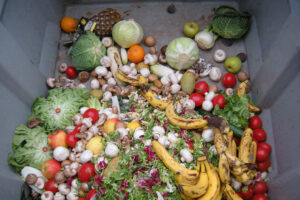Cement group seeks safeguard for local manufacturers

THE proposed extension of safeguard measures is needed to help the recovery of local cement manufacturers, according to the Cement Manufacturers Association of the Philippines (CeMAP).
CeMAP Executive Director Cirilo M. Pestaño II said during a virtual public hearing led by the Tariff Commission (TC) on Wednesday that extending the safeguard measures on the importation of ordinary Portland cement Type 1 and blended cement Type 1P from various countries is “an important support that can be given to the domestic manufacturing industry.”
Mr. Pestaño said manufacturers are just starting to recover after the reopening of the economy.
“But this can all be compromised if the safeguard measures are not extended. This is a real important support that can be given to the domestic manufacturing industry considering the various contributions that we continue to provide to the country,” he said.
According to Mr. Pestaño, the local cement industry has been facing challenges with the rising prices of fuel, which is attributed to the ongoing conflict between Ukraine and Russia. The safeguard measures are set to expire in October this year. “Approximately 70% of the cost of manufacturing cement is accounted for by both fuel and power. And that has been affected by the Ukraine war,” he said.
“It is imperative that the safeguard measure is extended to allow the continuation of advancement plans that have been started by the domestic cement manufacturers and for them to be able to possibly invest more into the Philippines and create more jobs, contribute taxes, and deliver socioeconomic benefits to the particular communities where they operate,” he added.
John Reinier H. Dizon, Republic Cement & Building Materials, Inc. vice-president for strategy and business development, said that removing the safeguard measures would result in a spike in cement importation.
“I believe that if the safeguard measures are not extended, we anticipate an immediate further spike of cement importation into the country, to the detriment of domestic producers. We believe that the Philippines will be quite vulnerable to surge of imports immediately once the current safeguard duty is removed,” Mr. Dizon said.
“The current safeguard duty in place is P200 per ton. We are in the final year of the safeguard measures duty. Removing such duty of P200 per ton will cause an erosion of the prices of cement that we are currently producing. We are today, already in very challenging times,” he added.
Meanwhile, Indonesia Ministry of Trade Director of Trade Events Natan Kambuno said that the current safeguard measures implemented by the Philippines should not be extended.
He added that the Philippines imported 532,000 metric tons of cement from Indonesia from 2019 to 2021, while Vietnam cement imports reached 80% of overall Philippine cement imports.
In December last year, the Philippines’ Department of Trade and Industry (DTI) slapped anti-dumping duties on Vietnam cement imports after an investigation showed that it had caused injury to the local industry.
“The government of Indonesia believes that the existing safeguard measures should not be extended further. The expiring safeguard measures [should] be replaced with a more targeted anti-dumping trade measures so an extension of the safeguard measure will not be necessary or appropriate anymore,” Mr. Kambuno said.
“The government of Indonesia reserves its right to request rate compensation should the existing safeguard measure on imported cement is extended,” he added.
Recently, CeMAP disclosed that cement from Vietnam accounted for 6.466 million metric tons of cement imports out of the 7.107 million metric tons imported by the Philippines last year.
In 2019, the DTI issued Department Administration Order (DAO) 19-13 that implemented a safeguard measure on cement imports for a three-year period after it was found that there is a causal link between higher cement imports and threat of serious injury to the local cement industry. The safeguard duties ranged from P250 per ton in the first year of implementation, down to P200 per ton this year. — Revin Mikhael D. Ochave




